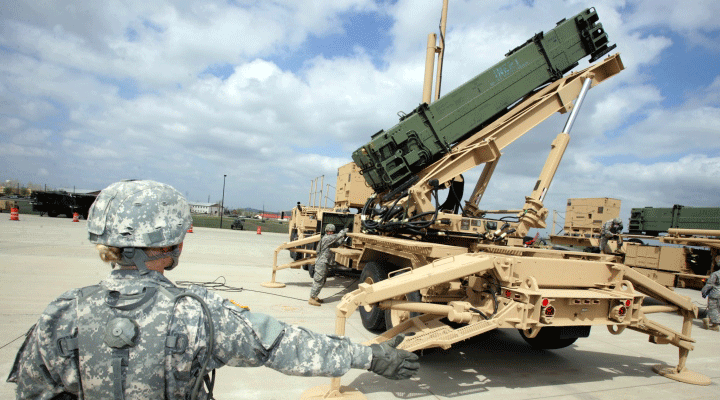It’s been a good week for Raytheon, builder of missiles and radar, and the country’s fourth-largest defense contractor. As president Trump visited Warsaw on his way to the G20 summit in Hamburg, Polish Defense Minister Antoni Macierewicz announced that the country had signed a memorandum to buy eight Patriot missile batteries from the U.S. manufacturer.
The deal, valued at $7.6 billion, will need the approval of Congress to proceed. The announcement follows last week’s news that Taiwan would buy $1.4 billion in missiles, radar, torpedoes, and other logistical support from Raytheon.
A LONG-DELAYED CAPABILITY FOR CENTRAL EUROPE
Poland has been trying to obtain a missile defense capability one way or another for some time. President George W. Bush proposed the former Warsaw Pact country and the neighboring Czech Republic as locations for interceptor missiles and a radar installation to establish a European missile defense capability. Although the U.S. insisted that the system would provide defense against attack from Iran, the locations for the interceptors indicated that the true intent was to defend against Russian aggression. For this reason, the Russian government strongly opposed the plan.
One of President Obama’s first major national security decisions was to scrap that plan in favor of one that focused on Iran’s short- and medium-range missiles. Obama announced his decision in the days leading up to the 2009 G20 summit. At the time, many observers viewed the decision as a concession to Russia, although the president insisted it was not. Vladimir Putin, then the prime minister, called the move “correct and brave.” In 2014, former GOP presidential nominee Mitt Romney called Obama’s move “a gift to Russia.”
Last summer, Poland announced its intention to seek permission to purchase the missiles itself.
WHO’S SOFT ON RUSSIA?
The news of the missile deal is a blow to those who argue the president is a shill for Russian interests. As late as last week, there was doubt the deal would go through. Polish newspaper Dziennik Gazeta Prawna reported that U.S. and Polish negotiators were at an impasse over certain technology export restrictions. No doubt, had the deal fallen through, critics would have pounced on the news as further evidence of Trump’s acquiescence to Russia.
But Trump, who will meet Putin face-to-face for the first time tomorrow in a formal meeting at the G20, has once again proven difficult to predict. While he made no mention of the deal in his speech in Krasinski Square, the location of a 1944 Polish uprising against the Nazi occupation, the Patriot sale dominated news coverage ahead of that speech.
In a press conference with Poland’s president, Andrejz Duda, Trump for the first time acknowledged Russian interference in the 2016 U.S. election, although he said others were likely involved as well. He did, however, note that the U.S. was working with Poland to confront “Russia’s destabilizing behavior.”
Tomorrow’s meting with Putin will shed more light on the director on U.S.-Russian relations, but today’s announcement of the missile deal is a clear indication that if anyone thought the president was going to step aside and allow Russia to extend its influence further into Europe, they have, to reuse a phrase from the Bush era, “misunderestimated.”




